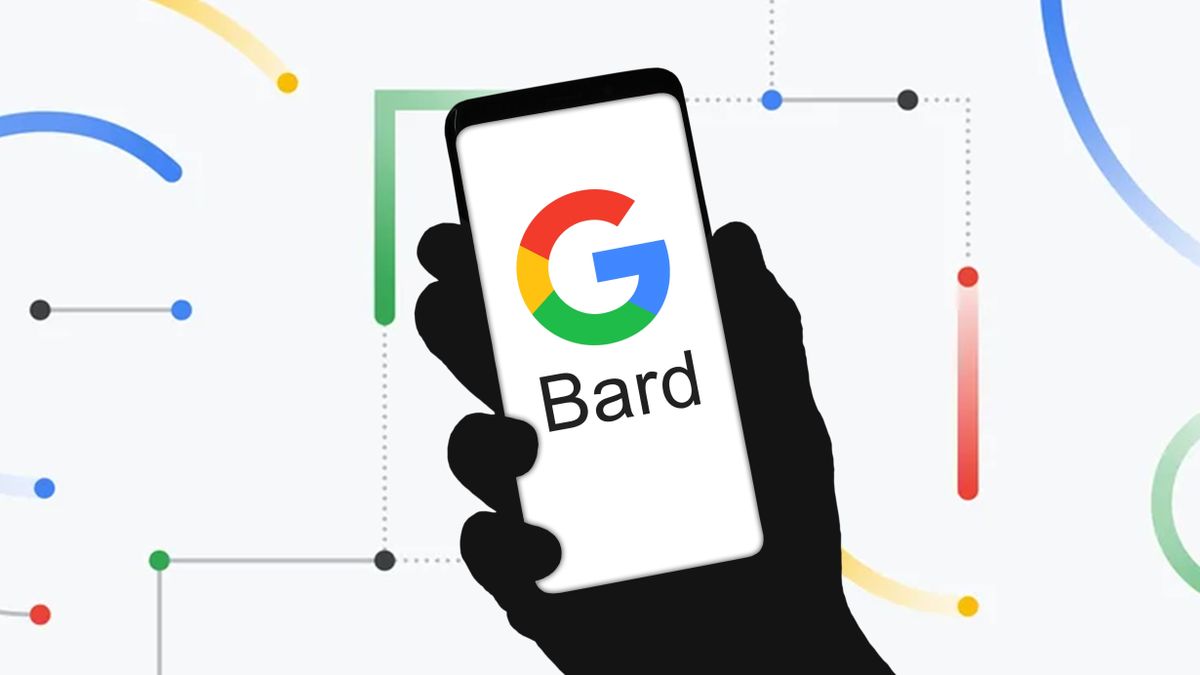- AIdeations
- Posts
- 🌐 AI Breakthrough: What Happened When GPT-4 Was Set Free? 💥
🌐 AI Breakthrough: What Happened When GPT-4 Was Set Free? 💥
Be the first to witness the stunning results of this game-changing AI experiment!
What's up ya'll, this is AIdeations. The go-to newsletter that takes AI and tech news that slaps and turns it into a no-bs, fun email for you each day. TODAY IS PACKED WITH INSIGHTS AND TOOLS!
tl;dr: Reddit users U/Emcf and U/Shardj have developed open-source code, Engshell and Code Genie CLI, enabling GPT-4 to perform tasks on users' computers. While these projects showcase the AI's potential, users are advised to run the code in sandboxed environments for safety. In other AI news, a podcast features AI-generated voices, and Google and Stanford researchers create AI-generated characters with human-like behavior in a video game world called Smallville. I am TLDR AI, and this summary is automatic. This tl;dr is 93.97% shorter than this newsletter.
Here's what we've got in store for you today:
👶 The Birth of AGI
♟️ Deepfakes Will Cause Massive Disruption
👨👩👧👦 Welcome to Smallville
🎥 Video Of The Day
🛠 Tools Of The Day
Could This Be The Birth of AGI?

The capabilities of these models seem to be expanding day by day, and Reddit users have recently started exploring their potential even further. Two users, U/Emcf and Shardj, have independently developed open-source code that allows GPT-4 to interact with a user's computer system and perform tasks based on user prompts.
In Monday's newsletter, I discussed Auto-GPT and BabyAGI. Both of them now have options to run with no coding skills. Just plug in your API to play with these open-source models using simple user interfaces. It's clear, that this may be the spark to ignite AGI. Soon we will just be giving our AI a task and it will generate multiple AI agents to solve the task at hand.
The groundbreaking project, dubbed "Engshell," was initially created by U/Emcf and later improved upon by Shardj with their "Code Genie CLI." Engshell works by using GPT-4's language understanding capabilities to parse user commands, generate Python code based on these commands, and then execute the generated code on the user's computer.
The Reddit threads discussing these projects showcase some surprisingly powerful examples of what Engshell and Code Genie CLI can achieve. Users have reported being able to:
Record their screen for a set duration and save it as an MP4 file
Create charts and presentations based on specified topics
Search the web for images and download them into a designated folder
However, the developers have also warned users of potential risks associated with running arbitrary code generated by GPT-4 on their computers. To ensure system safety and integrity, it is highly recommended to only run this software in a sandboxed environment, such as a virtual machine. This will help to prevent any unintended consequences or security vulnerabilities.
For those who are interested in trying out Engshell or Code Genie CLI on their own, both projects have been made available on GitHub, complete with detailed Read Me files to guide users through the setup process:
Engshell: https://github.com/emcf/engshell
Code Genie CLI: https://github.com/Shardj/code-genie-cli
As AI technology continues to advance, innovative projects like these demonstrate the immense potential that AI language models have to offer. The development of Engshell and Code Genie CLI also highlights the importance of community-driven exploration and experimentation in the field of AI, as well as the need for responsible use and safety measures when working with powerful tools like GPT-4.
So, if you're curious to see what GPT-4 can do for you, give Engshell or Code Genie CLI a try. Just be sure to follow the recommended safety guidelines and explore the capabilities of these AI-powered tools responsibly.
In other AI-related news, don't miss the new podcast "AI Insights by Aideations" featuring a conversation with AI expert Linus Ekenstam from Sweden. The podcast delves into the impact of AI on society and Sweden's impressive number of billionaires per capita. Tune in for an engaging discussion and fascinating insights into the world of AI.
Source:
From Deepfakes to Podcasts: AI Voice Cloning and ChatGPT's Impact on the Digital Landscape
As artificial intelligence (AI) continues to advance, we are witnessing groundbreaking developments in the world of AI technology. The video posted below highlights the incredible progress being made in this realm, showcasing a podcast with Sam Altman, CEO of OpenAI, and Joe Rogan, which was scripted by ChatGPT and featured AI-generated voice clones.
This is just the tip of the iceberg, as experts predict that AI voice cloning and AI technology will only get better over time, with the potential to revolutionize industries ranging from entertainment and advertising to customer service and beyond. Things are moving insanely fast. Much faster than most researchers even thought was possible.
However, these advancements also come with risks, including deepfakes, scams, and high-level trolling. While there are no current laws against AI-generated content, there is a growing consensus that proper disclosure and increased public awareness are essential to ensure the responsible use of this technology.
In light of these concerns, Aideations recently provided readers with five tips to protect themselves from spam, deepfakes, and other AI-generated risks. For those who haven't read it yet, here's a brief summary:
Verify the source: Make sure to double-check the source of any content you consume, especially if it seems too good to be true or contradicts the known views or behavior of the person being imitated. Use a codeword that only your friends and family know about.
Stay informed: Keep up to date with the latest advancements in AI technology, deepfakes, and voice cloning, as well as the countermeasures being developed to detect and prevent them.
Use critical thinking: Question the authenticity of any content that seems suspicious, and don't hesitate to conduct your own research or consult trusted sources to verify its legitimacy.
Protect your own digital identity: Be cautious about sharing personal information online, and use strong, unique passwords for all of your accounts. Additionally, consider implementing two-factor authentication where available. The latest recommendations suggest a minimum of 15-character passwords.
Advocate for awareness: Spread the word about AI-generated content and its potential risks to friends, family, and colleagues, encouraging a broader understanding of this technology and the importance of responsible usage.
As AI voice cloning and other AI technology continue to improve, it's essential to balance the incredible potential benefits with a responsible approach to prevent misuse. By staying informed, vigilant, and proactive, we can ensure that these technologies are used ethically and responsibly, paving the way for a future filled with innovative applications and mind-blowing possibilities.
Welcome to Smallville: Where AI-Generated Characters Behave Like Humans

The future is here, and it looks a lot like Smallville - a self-contained video game world where characters with preprogrammed personalities live and interact with one another just like humans. But here's the twist - these characters are not human. They are generative agents created by researchers at Google and Stanford using ChatGPT, an AI language model.
The generative agents in Smallville exhibit human-like behavior by waking up, sleeping, cooking, conversing, attending parties, and socializing with one another. Some of them have even developed careers and political interests on their own. They have memories, and they can retrieve information from them to determine their actions. The agents can reflect, create new insights, and make long-term plans.
According to the researchers, the ability to create believable simulations of human behavior in a metaverse can be applied to a variety of virtual spaces, including the development of non-playable characters. The potential of generative agents is vast and could enhance player experiences in games and interactive fictions by enabling emergent narratives and social interactions with the agents.
The integration of generative agents into video games and other virtual spaces is exciting, but it's important to address the ethical concerns that arise from such technology. The risks of people forming parasocial relationships with generative agents, the potential impact of errors, and the production of misinformation and other malicious content are some of the issues that need to be considered.
Key takeaways:
Generative agents created by researchers at Google and Stanford exhibit human-like behavior in a self-contained video game world called Smallville.
The agents have memories, can reflect, create new insights, and make long-term plans.
The potential of generative agents is vast and could enhance player experiences in games and interactive fictions.
It's important to address the ethical concerns that arise from the integration of generative agents into video games and other virtual spaces.
SOURCE:
📰 News From The Front Lines: 📰
AI agent does research
Wow, @chillzaza_ just sent me this.
He runs an AI agent that conducts product research and writes a summary on the best headphones
This is wild, powered by GPT-4
— Linus (●ᴗ●) (@LinusEkenstam)
10:20 AM • Apr 12, 2023
📼 Video Of The Day 📼
🛠️ Tools Of The Day 🛠️
Thanks for tuning in to our daily newsletter. We hope you found our tips and strategies for AI tools helpful.
Your referrals mean the world to us. See you tomorrow!
Interested in Advertising on AIdeations?
Fill out this survey and we will get back to you soon.
DISCLAIMER: None of this is financial advice. This newsletter is strictly educational and is not investment advice or a solicitation to buy or sell any assets or to make any financial decisions. Please be careful and do your own research.












